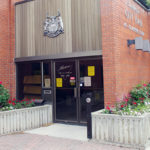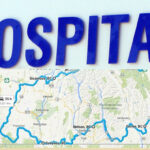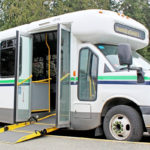Home »

Food safety is everyone’s business
By Sharon Wass
Everyone loves a farmer’s market, and tourism brings many people to the valley, who all need to eat somewhere.
 Satisfied customers are repeat customers who bring revenue to our local economy. Conversely the rumor of a food borne illness can destroy an establishment’s reputation, often unjustly. In response to this, the BC Foodsafe Secretariat has developed three different courses on food safety; Marketsafe, Foodsafe level one, and Foodsafe level two.
Satisfied customers are repeat customers who bring revenue to our local economy. Conversely the rumor of a food borne illness can destroy an establishment’s reputation, often unjustly. In response to this, the BC Foodsafe Secretariat has developed three different courses on food safety; Marketsafe, Foodsafe level one, and Foodsafe level two.
Spring fever has definitely gained momentum, and while it is still too cold at night to plant outdoors, many enthusiasts are starting plants indoors, perhaps with the idea of selling their excess vegetables at the local farmers markets. Add to that the concern many people have about the quality of the food we are buying and the desire to reduce our carbon footprint by eating local and the result is a surge of demand for local fresh food. Marketsafe was developed as a guideline for how to sell food at temporary markets in a safe manner to ensure no food borne illnesses occur.
Marketsafe examines the biological, physical and chemical sources of food borne illnesses. Knowledge of the characteristics of biological pathogens allows food handlers to limit the possibility that those pathogens can survive. The responsibilities of vendors, market managers, health authorities and even customers are outlined in this course. Transportation, displaying, labeling and packaging are all discussed. Participants are given a clear flow chart defining what foods could potentially be hazardous.
Whether at a temporary market, or in a retail outlet, the training in safe food handling practices that Marketsafe offers can help ensure there are no cases of food borne illnesses resulting from how the food is handled. As the value of being able to display the fact that all your vendors are trained in food safety catches on, more and more markets could be require that vendors must be certified in either Marketsafe or Foodsafe.
The Cranbrook Farmers’ Market recently took advantage of a bursary offered by the British Columbia Farmer’s Market Association and trained 19 of their members.
Several years ago the hospitality industry requested that Foodsafe become a mandatory part of doing business in B.C. Consequently, every owner/operator and at least one person per shift in their absence must have Foodsafe level one. Level one offers basic training for entry level employees of a variety of food service establishments. It is also a prerequisite for many post secondary courses.
Like Marketsafe, Foodsafe level one examines the causes of food borne illnesses. Then it goes on to illustrate the top ten improper food handling practises that result in infections and intoxications. The emphasis in level one is on receiving, storing, preparing, presenting food and cleaning of food service establishments. It is invaluable information for restaurants, care homes, daycares and any establishment that handles food.
Foodsafe level two is directed at the managerial level of food handling. It reviews all of the microbiology and food handling practices in the level one program and then trains the participants in writing food safety plans and sanitation plans for their own establishments.
Food safety is everyone’s business. Safe practices are valuable at home, at work and at the marketplace. Restaurants, bed and breakfast facilities, daycares, school, and seniors homes all need to have a strong knowledge of the best practices to ensure there are no outbreaks of food borne illnesses.
Courses are available both online and in person. Check out your local College of the Rockies Guide to see when a course is being offered near you. Open School offers Foodsafe level one and level two on-line. You can also refer to www.foodsafe.ca to find information about courses and instructors.
– Sharon Wass of Wass Education Consulting combines several years experience in the hospitality industry with her knowledge of Food Safe training and instructs for College of the Rockies as well as consulting businesses on developing food safety plans.







